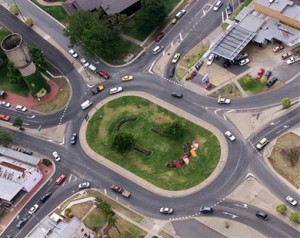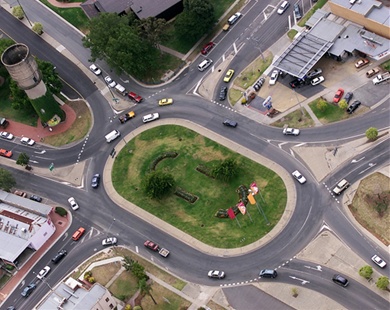Sermonic Theologizing of Frontier Justice – by Delfin Bautista
There is no longer Jew or Greek, there is no longer slave or free, there is no longer male and female; for all of you are one in Christ Jesus. And if you belong to Christ, then you are Abraham’s offspring, heirs according to the promise.
Galatians 3:28-29

For the lesbian of color, the ultimate rebellion she can make against her native culture is through her sexual behavior…she goes against two moral prohibitions: sexuality and homosexuality. Being lesbian and raised Catholic, indoctrinated as straight, I made the choice to be queer. It’s an interesting path, one that continually slips in and out of the white, the Catholic, the Mexican, the indigenous, the instincts. in and out of my head. it makes for loqueria, the crazies. it is a path of knowledge–one of knowing and of learning the history of oppression of our raza. it is a way of balancing, of mitigating duality.
from Gloria Anzaldua’s Borderlands, La Frontera: The New Mestiza
Neither Greek nor Jew, neither male or female … many have argued that these words of Paul are the makings of a new evolving Christian tribe unified by Jesus’ teachings of G-d’s kindom, la familia de Dios. However, rather than engaging this traditional interpretation, I want to query or queerify Paul’s idea of “nor” and “neither”, venturing that Paul was a theologian of la frontera, the frontier or borderland. There is neither blank nor blank according to Paul because we are a both/and people. As human beings we embody both Greek and Jew, male and female, black and white. The early Christian communities were onto something as they wrestled with the messiness of inner and outer co-existence.
Today our prophetic calling as people of faith for justice can be rooted on the radical challenge of Paul’s message—to have all our identities interact, fight, and coexist, to live into and be a frontera, a borderland, a frontier. I believe that Paul and the early Christian communities were not advocating for differences and particularities to be quelled or melted into an amorphous blob. Rather, it is invitation to unity, both internal and tribal, based on the celebration and lifting up of the borders within and among us.
The border is more than just the division between the US and Mexico, Haiti and the Dominican Republic, Uptown and Downtown. Boundaries are places of encounter and celebrations of difference. We are conditioned, however, to be fearful of difference, to water ourselves, our traditions, and our identities down. We are brainwashed into wanting the same car, hairstyle, white picket fence, walk-in closet, to be slim … our quirks are blow dried, straightened, dyed, lyposuctioned, and botoxed into the blandness of conformity. We are coerced by the media, the education system, society, and by the church to erase borders and to blur la frontera — to uphold false notions of inclusivity that exclude, marginalize, and oppress those who believe that kumbayah is more than just a melting pot but a yearning for conflict and tension in harmony.
Using Paul as a starting place for a personal theology that ripples into acts of justice, I pose the following questions: how have we responded, how are we responding, and how will we respond to G-d’s call and invitation to embody the sacredness of the borders within us and among us? Paul’s revolutionary message and challenge is to honor the intersections within and among us, in doing so we begin to develop a framework for justice that is intersectional—justice that embodies the image of frontera, a borderland.
Paul’s wisdom and vision of “neither” and “nor” allows us to embrace frontier justice. It is not about adding more and more tasks to an endless list of demands to our already busy lives, but encouraging the asking of questions that makes our lucha, our struggle, more inclusive. As a transgender person, I live on the border of dominant and queer narratives of gender, embodying both male and female and both masculine and feminine identities. By honoring the frontera within me, I am able to struggle intersectionally for justice looking at the connections within and between issues.
For example, I am concerned about how trans identified individuals are treated in the work place, making sure that nondiscrimination policies such as the Employee Non-Discrimination Act (ENDA) currently before Congress are inclusive of gender identity and expression ensuring that transgender people are protected from employment-based harassment and discrimination. By starting with the identity of transgender and the issue of non-discrimination I can also embrace…
- Education efforts that focus on antibullying programs that make sure that all students are able to go to school to learn and not fear for their lives.
- Healthcare reforms that ensure that trans people and all people have access to quality healthcare programs that offer cover life-giving benefits such as hormone therapy and other medically based transitions.
- Reproductive justice movements that allow trans folk to adopt and start families and ensuring that Planned Parenthood centers remain open in order to access affordable reproductive and general healthcare.
- Immigration reform efforts that build off Secretary Hillary Clinton’s decision to change immigration forms to state “parent” rather than “mother and father”, lift up the needs of binational couples, seek to pass policies that allow individuals to change gender markers on documents, and that ensure that an individual’s gender identity is recognized and respected in situations involving detention centers.
The list could go on and on to include comprehensive sexual education to include education on gender, economic justice and housing protections, etc, etc, etc. By focusing on one identity and issue, we are able to advocate for a spectrum of issues. This new interpretation of Paul’s message opens up the possibility of connecting justice movements, creating a fronteriza justice movement that advocates en conjunto, in community, for many different issues together and as one.
To adapt Paul’s words, “we are neither Reproductive Justice nor LGBT Equality”—but activists of la frontera, frontier, working together so that all people are celebrated. Even when we focus on one issue, we are able to see and query how it connects to multiple issues. En conjunto, together, we tackle injustice, widening our allies, partners, and networks in order to share resources that are becoming more and more limited but more importantly because it a reflection of who we are as a borderland people committed to frontier justice. The gospels tell us that “where two or more are gathered, there I am in their midst.” Taking this a step further, where two or more issues, identities, and convictions for justice, there too is the G-d of justice, equality, and liberation joining la lucha, the struggle, with us.


Beautifully written! I am not a big fan of Paul, his “let women be silent in Church” always sticks in my gut and I wonder how the same man can believe “there is no longer male and female”. But I love what you are saying and I choose to believe that the essential message of universal acceptance and love is what G-d meant for us all along. Hope we get that message soon!
For people of faith and those who take seriously the Gospel of Jesus and the writings of Paul, this essay is challenging and thought-provoking. It is true that most of use are much more at ease living our lives not on the edge, the border, la frontera, but rather in the realm of what is known, familiar, homogenous and comfortable. As a general principle, I couldn’t agree more that it is precisely at the border of difference where we should not build fences but should hold conversations. It is at the border of difference where we should come not armed with guns and weapons, but carrying gifts of welcome and invitations to engage.
One such border of difference that the author fails to acknowledge is the very real and deeply felt difference on some of the issues raised by that ill-defined term, “Reproductive justice.” I suspect that this term includes the perspective that supports access to abortion, either with or without any limitations. Without going into the issue more deeply, I think that it is essential that we recognize that people of good faith and who would be supportive of most of the author’s bullet list of issues, might feel the need to pause when it comes to the issue of abortion. To pick up the them of “both/and” and apply it here, how do we engage in fruitful conversation that does not define this issue as one in which “a woman’s right” trumps the science-based perspective that a unique human entity begins at the moment of conception? How does our respect for all human life get applied not only to the challenges faced by the lgbt community, but also to all of the issues raised by the simple yet challenging phrase, “from conception to natural death”?
I don’t profess to have answers to these questions, but I thank Delfin Bautista for at least reminding us that la frontera is the place where new discoveries and new ways of seeing can be found.